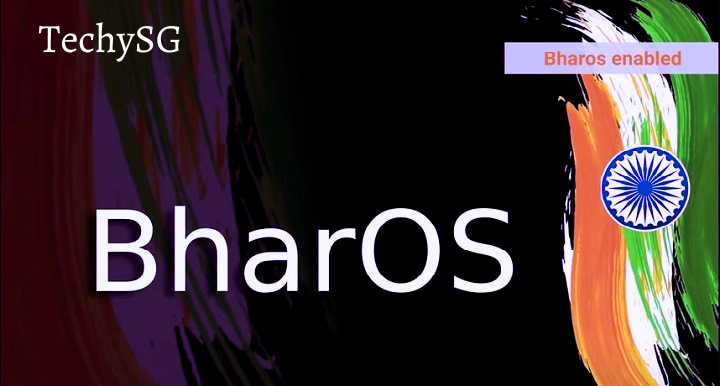What is BharOS, India's new mobile operating system that wants to compete with Android?
Created by an IIT Madras-hatched startup called JandKops, BharOS or BharatOS is a more secure and more protection situated, AOSP-based versatile working framework that intends to take on Android and iOS in India.
Stressed over worldwide tech firms utilizing the information of Indian residents, and how there are no feasible options for the majority with regards to research, the public authority of India needed to foster a native versatile working framework that could face Google's Android operating system, and have the special reward of focusing on protection and being protected.
With that impact, IIT-Madras as of late reported, that one of the new companies from its hatcheries, has fostered another local working framework called BharOS or Bharat operating system. BharOS vows to be a safer and confidential versatile working framework and is intended for India's 100 crore cell phone clients, who have no choice other than Android and iOS, working frameworks that are possessed and overseen by American organizations.
What is BharOS? How could it be made?
Bharat operating system or BharOS should be India's response to research's Android and Apple's iOS. Since all cell phones either run on Android or on iOS, there has forever been an inescapable disquiet about how these organizations gather, store and utilize the information that is created by Indian cell phone clients. BharOS attempts to resolve these issues.
BharOS is an Android Open Source Venture and was created by JandK Tasks Private Restricted (JandKops), a non-benefit association brooded at IIT Madras.
Why isn't BharOS exactly like Android?
In fact, BharOS is basically the same as Android, sharing similar nuts and bolts. BharOS uses his AOSP or Android Open Source Venture, so the features and philosophies of both operating systems are basically similar. What makes BharOS different from Android is that it is free from Google administration and applications. Google has collected information from time to time using pre-installed applications and administrative functions without asking customers specifically. Other applications in Google's PlayStore also pass information to external administrators.
BharOS does not come with such pre-installed management features or applications and is therefore considered more secure.
How to implement BharOS?
At this time there are no details on how a customer will get his BharOS. Eliminating pragmatic frameworks and introducing new frameworks into multipurpose phones is truly a risky business, something even the most prepared tech enthusiasts have been thinking about for a long time.
As such, BharOS will likely be limited to new and upcoming gadgets, and not be dismissed outright with more established gadgets. BharOS also currently has stringent protection and security requirements and is intended only for associations "where customers process sensitive data that requires private exchange via limited applications on mobile phones". Operating systems probably won't be available to the masses anytime soon.
It's normal for an OS engineer to work with his OEM-specific hardware makers to ship BharOS-enabled phones in the future.
BharOS be released?
BharOS have not given any details about its delivery date or the highly-praised phone. In any case, the designers are expected to bring BharOS-powered phones to market soon, along with phone manufacturers.
How can applications be loaded onto BharOS?
BharOS does not have many default applications found in Android.
Overall, customers can choose which applications to use on their gadgets. It will also have its own application store for customers to download and deploy applications, eliminating the need for the Google application store.
Clients may be able to sideload applications more easily than Android. Aside from a few basic applications, BharOS could also head towards natively built applications or applications planned with a specific focus on India and Indian customers.
Which is better, BharOS or Android?
It's not that simple. BharOS has advantages, especially in terms of security and protection. But Android has some traditional advantages that people have a hard time giving up. In fact, Android supports a wide range of gadgets and gadgets, from simple phones under Rs 6,000-7,000 to sophisticated and expensive flip phones costing over Rs 100,000.
I don't know what gadgets BharOS supports. Another benefit is that Android has a very large customer base, so bugs and issues are detailed and resolved quickly. There are very few bugs in the Android operating system. Most errors occur when OEMs try to overlay their own user interface onto Android. Also, I don't know how often BharOS gets updates, security or creations.
- BharOS
- AppleOS Vs BharOs
- Android Vs BharOs
- AppleOs And Android Vs BharOS
- A new operating system made by India
- India News
- Trending News
- Now India Is On Best Work
- Future Planning
- Planning For India
- Indian Top News
- IIT Madras
- Non-profit organized
- Security
- Power full prosesar


